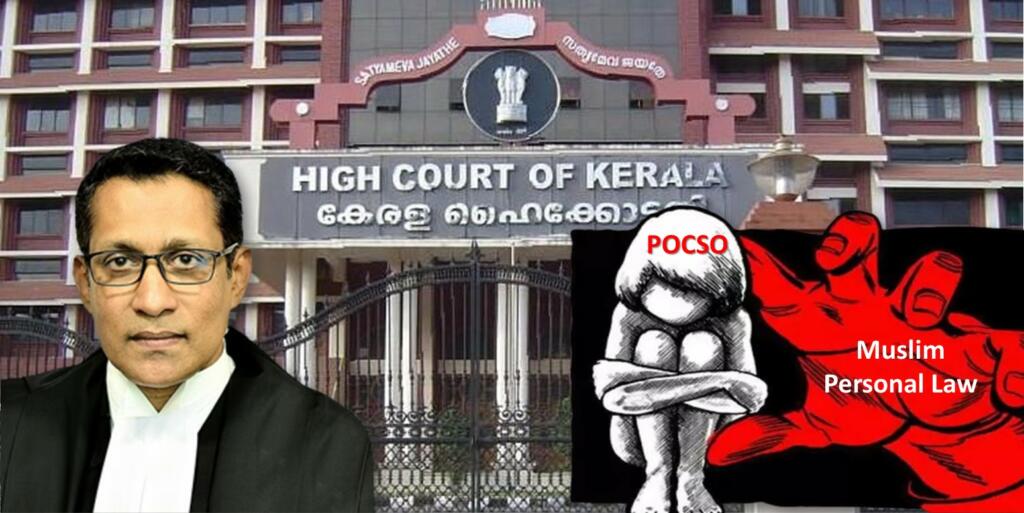Society is an amalgamation of people from diverse strata with distinct values. As a consequence, a sharp divide exists between the populace with respect to their social, ethical, philosophical and cultural ideologies. Owing to these cultural divergences, a variety of personal and customary laws are in place to meet the ends of plurality.
On the contrary, due to the preferential application of the aforementioned personal laws, the vulnerable groups, especially women and children are subjected to various atrocities. Therefore, the application of personal laws needs reconsideration as they are inclined towards promoting patriarchy with respect to communities availing these privileges.
Muslim man kidnaps and rapes a minor girl
The case arose out of an incident where a Muslim man, aged 31 years, was accused of kidnapping and raping a minor girl from Kolkata. The victim was only 15 years and 8 months old on the date of registration of the FIR. The crime was registered after intimation was received from the doctor whom the victim and the accused had approached for a check-up on her pregnancy.
The accused was arrested on the 1st of September 2022 and has been in detention since then. It is alleged that their marriage took place on the 14th of March 2021 in West Bengal as per Islamic rites and customs under Muslim law and was registered under the West Bengal Act XXVI of 1961. The age of the victim at the time of marriage was, therefore, only 14 years and 4 months. The court denied the bail plea of the accused and made a historic observation.
Child abuse penology & POCSO ACT
Recently, the Single Bench of Justice Bechu Kurian Thomas pronounced a progressive verdict illustrating the principles of equal application of law. Hon’ble Justice Bechu Kurian Thomas catechized the subordination of ‘special law’ by the ‘personal’ and ‘customary laws.’ The aforementioned judgment brings the marriages performed under personal laws within the purview of Protection of Children from Sexual Offenses (POCSO) Act, 2012.
Furthermore, if any of the party involved is juvenile, the validity of marriage would become irrelevant to prosecute under the provisions of POCSO Act, 2012. The court further illustrated the essence of child protection legislations and observed, “The POCSO Act is a special statute enacted specifically for the protection of children from sexual offences. Sexual exploitation of every nature against a child is treated as an offence. Marriage is not excluded from the sweep of the statute.”
The court further mentioned that underage marriages have traditionally been subjected to the atrocities of child abuse.
Significantly, underlining the need of the special law, the court held, “The POCSO Act is a special enactment. The advances and progress achieved in societal thinking have resulted in the enactment. This special statute was enacted based on principles arising out of jurisprudence relating to child abuse. The child abuse jurisprudence evolved out of the need to protect the vulnerable, the gullible and the innocent child. The legislative intent to protect the child from sexual predators hovering over them under different labels, including that of marriage, is explicitly evident from the statutory provisions.”
Evils of Child Marriage
The Hon’ble Justice points out the tribulations caused by the menace of child marriage on the development and growth prospects of a child.
The court observed, “A child marriage compromises the growth of the child to her full potential. It is the bane of society. The legislative intent reflected through the POCSO Act is to prohibit physical relationships with a child, even under the cover of marriage. This is the intent of society, too, for a statute is, as is often said, the expression or reflection of the will of the people. In the accomplishment of the said intent, the POCSO Act has defined the word ‘child’ in section 2(d) as ‘any person below the age of 18 years.”
Also Read: Mockery of the POCSO Act; Maulana comes to court and marries rape victim, a minor, to her rapist
POCSO overrides the Personal Laws
The Single Bench of the Kerala High Court took a view that the criminality that follows from the illicit acts against a minor child cannot be granted the exemptions provided under personal and customary laws.
The court pointed out that “Personal laws and customary laws are both laws. Section 42A intends to override such laws also. Therefore, it cannot be gainsaid that after the coming into force of the POCSO Act, penetrative sexual intercourse with a child, even if it is under the guise of marriage, is an offence.”
In view of the above debate, the court was of the view that marriage between Muslims under personal law is not excluded from the ambit of the POCSO Act, 2012. If one of the parties to the marriage is a minor, irrespective of the validity or otherwise of the marriage, offenses under the POCSO Act will apply. Accordingly, the bail application was dismissed in the aforementioned case.
Consequently, the minorities availing the privileges of the above personal laws are against the equality principle and are subjugating the rights of women and children. On the contrary, the long-standing constitutional aspiration mandating the Uniform Civil Code and equal application of penal laws is the only way out to overcome this menace.
That is to say, the state should have the same yardstick for the application of the penal provisions and divergence on the face of customary laws should be discouraged
Support TFI:
Support us to strengthen the ‘Right’ ideology of cultural nationalism by purchasing the best quality garments from TFI-STORE.COM
